|
Event Description:
It is taken for granted that we should often act in the best interest of our future selves, and even on behalf of future generations, but when should we act for the sake of past people, and even our own past interests? In a range of cases we find ourselves bound by our past decisions, or by the past decisions of people who have come before us. When is it okay to break from those bounds, and when are we required to abide by the decisions of the past, even when they conflict with our interests now? Our distinguished panelists will discuss cases of advanced medical directives, duties to vindicate the sacrifices of past generations, and duties to history. Panelists include: · Rebecca Dresser, Daniel Noyes Kirby Professor of Law Emerita, Washington University, St. Louis · Tania Gergel, Wellcome Trust Senior Research Fellow, King’s College, London · S.J. Beard, Centre for the Study of Existential Risk, University of Cambridge · Saul Smilanksy, Professor, University of Haifa, Israel Hosted by Barry Lam, Associate Director of MSF and host of Hi-Phi Nation podcast. To register for this event, please visit registration page HERE.
0 Comments
Minorities and Philosophy (MAP) is looking for two new organizers to help run MAP International. MAP is a collection of students in philosophy departments that aims to examine and address issues of minority participation in academic philosophy. It is currently comprised of over 170 chapters worldwide and continues to grow and expand. The role of International Organizers is largely to facilitate the success of MAP chapters and oversee the development of the larger organization. Thus, responsibilities include, but are not limited to, meeting regularly with the other International Organizers (roughly twice a month), making decisions regarding the growth of MAP regions and projects, coordinating with outside organizations (like the APA and funders), responding to chapter funding requests, updating the website and social media pages, advertising events, collating lists of chapter activities, touching base with chapter organizers, and more. Additionally, MAP International Organizers work on projects meant to set the agenda for important interventions on behalf of marginalized groups in philosophy (such as our project on service work in 2019-2020 and our fundraising campaign in 2020-2021). In this capacity, Organizers have substantial freedom to propose and take up specific cause areas and are expected to be proactive. Some of the responsibilities associated with this dimension of the role include: collecting resources, running surveys, collecting input from MAP members, writing reports and blog posts, producing and distributing infographics and other social media materials, and hosting APA Group sessions (and sessions at other conferences). Organizers receive a modest honorarium for their work. We especially encourage Black, Indigenous, and people of color to apply to these positions. Criteria for applying:
To apply, complete and submit this Google Form by June 25, 2021. We will notify all applicants by July 8, 2021. Start date is approximately July 15, 2021. If you have any questions, please contact us at mapforthegap@gmail.com. Individual Character and Structural Injustice
Thursday, May 27, 5:30 pm ET This is a Zoom event. Registration is required HERE. Event Description: We live in a time when structural injustices and systemic problems abound, in public health, race relations, gender relations, and more. Policymakers and activists propose structural solutions targeting systems as a whole, like a sugar tax, liability insurance for police, school desegregation, or paid family leave. Policy solutions seldom include suggestions that moral and psychological traits of individuals are at fault or should be the focus of change, like moral education, empathy cultivation, or prejudice and bias reduction. The Marc Sanders Foundation and the PPE Society invite you to this panel where the central question will be discussed: Is there a role for interventions targeting individual moral character or psychology to address at least some of the “structural” problems that we face? Panelists include:
Hosted by Barry Lam, Associate Director of MSF and host of Hi-Phi Nation podcast. (Image Description: Cultivating Underrepresented Students in Philosophy. Penn State's Department of Philosophy is hosting our Fall CUSP Workshop, October 17-20, 2021, for students planning to apply for graduate school for Fall 2021. For more details including eligibility, please visit: https://sites.psu.edu/cusp)
March 26, 2021, 3:35 pm CDT (UTC-6)
A Category Theoretic Framework for Physical Representation Sarita Rosenstock (Philosophy, Australian National University)Abstract: It is increasingly popular for philosophers of physics to use category theory, the mathematical theory of structure, to adjudicate debates about the (in)equivalence of formal physical theories. In this talk, I discuss the theoretical foundations of this strategy. I introduce the concept of a “representation diagram" as a way to scaffold narrative accounts of how mathematical gadgets represent target systems and demonstrate how their content can be effectively summarized by what I call a “structure category". I argue that the narrative accounts contain the real content of an act of physical representation, and the category-theoretic methodology serves only to make that content precise and conducive to further analysis. In particular, one can use tools from category theory to assess whether one physical formalism thus presented has more "properties", "structure", or "stuff" than another according to a given narrative about how they both purport to represent the same physical systems. webinar link: https://z.umn.edu/IPDFMar21 First batch application deadline: March 5, 2021 Application form: https://forms.gle/VuS6ihdHowX7Tq3i8 Program description Marginalized graduate students often face many obstacles navigating graduate school, and often left with inadequate support from within their own department. The faculty of their home department might not be familiar with the needs of minority graduate students to know how to best support them. In some cases, the graduate student body of their home department might not be sufficiently diverse, such that marginalized graduate students might have the need to find an external community in addition to their cohort in the department. The purpose of this peer mentorship network is to build a support network by connecting marginalized graduate students in philosophy from different departments together. Getting perspectives from someone in similar situations but external to the department can provide a good source of support and guidance while they navigate this stage of their career. Participants will have a non-judgmental space to meet people with similar experiences as a minority graduate student in philosophy academia. This network will enable participants to get perspectives on how students in other departments deal with issues affecting minority students, and to share and learn new languages and strategies to deal with concrete personal experiences. Application and placement The program is open to anyone who identifies as a marginalized student, is currently enrolled in a philosophy graduate program (MA or PhD), and will remain enrolled by March 31, 2021. There is no geographical restriction and you do not need to be in the US to apply. The program is not selective, and we strive to place everyone who applies into the program. Each peer mentorship group consists of 6-8 students, ideally with a mix of participants in various stages of graduate school, as well as a mix of institutions represented. Placement in the groups will be determined by applicants’ response to a questionnaire in the application. Applicants will be asked about what factors they would like the administrators to consider when matching them with other participants into a group, including their racial or gender identity, disability status, international student status, and many others. We will attempt to disperse students from the same institution into different groups. Ideally, for each group, there will be no more than one graduate student from the same department. This is for confidential reasons, and also to encourage students to use the network as a way to step out of the insular environment of their home department. We will have several batch deadlines, approximately every two months. The first deadline will be March 5, 2021. Subsequent deadlines will be announced. Participants will be notified via email about their placement. Structure and commitment Participants will receive an email about group placement once they have been admitted. Group members are encouraged to meet with each other over video chat to clarify their expectations of the group, and to establish a communication plan. Afterwards, there will be two parts to the network’s regular functioning:
Norms for engagement
Feedback
Workshop Details:
A small group of applicants will meet twice over the course of 2021, first on May 7-8, and then again in late June. The aim of the workshop is to inspire a cohort of socially oriented philosophers to engage more closely with experimental work by giving them an opportunity to design and conduct their first philosophically significant experiment. The May workshops will begin with a panel on experimental and empirical methods in philosophy, as well as the intersection between feminist philosophy, broadly construed, and x-phi. Confirmed panelists are Serene Khader (CUNY) and Jesse Prinz (CUNY). Jordan Wylie (CUNY) will also run a crash course in experimental design, with a special focus on survey studies. The second day will be dedicated to workshopping participants' ideas into full-blown experimental designs. The workshop in June will be dedicated to data interpretation, and will give participants an introduction to the kinds of statistical analyses required to work their studies up into publishable papers. Between workshops, participants will are invited to join the CUNY Graduate Center's bi-monthly X-Phi Lab, organized by Jesse Prinz and currently running online. Prospective applicants will be graduate or undergraduate students with a background or interest in feminist philosophy, broadly construed, who also have an interest in x-phi but little to no experience in with empirical methods. Special consideration will be given to students from underrepresented groups in philosophy. For more information, including how to apply, see www.feministxphi.com/workshop. For questions and inquiries, contact sbrick@gradcenter.cuny.edu or tzyglewicz@gradcenter.cuny.edu Why Apply???
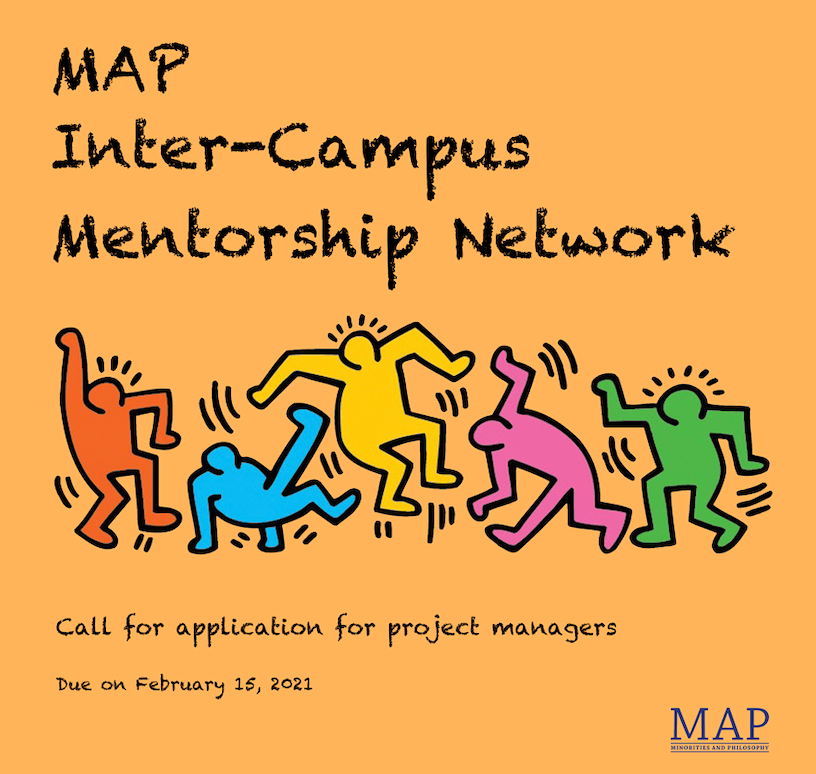 Minorities and Philosophy (MAP) will be hiring one to two program manager(s) to help run MAP International’s new inter-campus peer mentorship program in its Beta phase. MAP is a collection of students in philosophy departments that aims to examine and address issues of minority participation in academic philosophy. It is currently composed of over 160 chapters worldwide and continues to grow and expand. The role of program managers is largely to facilitate the success of the MAP peer mentorship program. Each program manager is in charge of no more than 50 graduate student participants in the program. Program managers do not directly participate in the individual peer mentorship groups. The duration of the position is 6 months, with the start date of around March 1, 2021. The estimated workload is about 20 hours for the entire position. Responsibilities include:
Program managers receive a modest honorarium for their work. Half of the honorarium will be dispersed at the start of the position, and the other half at the end. You’re encouraged to email us at mapforthegap@gmail.com for the current rate. Criteria for applying:
We especially encourage Black, Indigenous, and people of color to apply to these positions. We also encourage undergraduates and master’s students who are considering further education in philosophy to apply, as this position will provide you with the opportunity to get to know the community of philosophy graduate students. To apply: Submit a short statement of interest (1 page) and a short CV (fewer than 2 pages) as a single PDF by February 15, 2021, to mapforthegap@gmail.com with the subject line ‘MAP Application.’ Your statement of interest should explain why you are interested in the role of Program Manager for the MAP inter-campus peer mentorship program and why you would be a good fit. You should also detail past MAP or related organizing experiences. Please contact mapforthegap@gmail.com if you have questions. Call for Submissions: Public Philosophy and Activism (MAP Group Session at the Central APA)12/3/2020 At the Central APA in February 2021, MAP International will be running a Group Session on Public Philosophy and Activism. We are inviting submissions for brief, 5-10 minute presentations on the topic of public philosophy and activism. The session is scheduled for Saturday, February 27, 10:10am-1:10pm Central Time, and will take place virtually. The session keynote is Olufemi Taiwo (Georgetown).
Speakers have the option to present live at the session, or to pre-record their presentations (giving speakers the opportunity to incorporate video footage, music, and other media into their presentations). Possible topics for presentation include but are not limited to:
Submissions can be made using this Google form. The application is not intended to be selective -- we plan on accepting as many speakers as our session time allows. The deadline for submissions is Friday, January 15. We will notify speakers by January 25. Please send any questions and comments to mapforthegap@gmail.com. We look forward to reading your submissions! Next installment of Sustainability in Philosophy Forum on Climate Change and Racial Justice will be held on Zoom on Monday, October 19. In the midst of heartbreaking and outrageous racial injustice around the world, this year presents a big opportunity for all of us to stand against racism, environmental and otherwise, and to merge environmental efforts with movements for racial justice more effectively than has been done so far. This forum will be a chance for us to come together as philosophers around these issues, and to think together about what we can do as philosophers within and outside our field. The forum will be at 10:30am-noon Eastern USA & Canada time; this somewhat earlier than usual time makes it more feasible for philosophers in Asia to join.
At the beginning of the forum, Olúfẹmi Táíwò, Gisele Secco, and Nora Mills Boyd will each speak for several minutes about their recent efforts and experiences related to climate change and racial justice, and/or about what they think would be good for philosophers to think about and do in the context of climate change and racial justice. We'll then invite any philosophers of color who are present and have not yet spoken to speak briefly if they would like to. And then we'll have open discussion for the rest of the forum. If you have time, we suggest taking a look at these optional short pieces to get discussion going: one on colonialism as cause of environmental crisis, a recent Sierra Club statement, and our own statement of solidarity with racial justice movements. If you would like to join, please send an email to philosophersforsustainability@gmail.com, mentioning that you are a MAP member. |
NEWSUpdates on MAP and MAP-related happenings.
Please contact us here for suggestions, comments, or job postings. Archives
December 2023
Categories |
|
MAP is generously supported by the Marc Sanders Foundation and the Philosophy of Science Association.
|


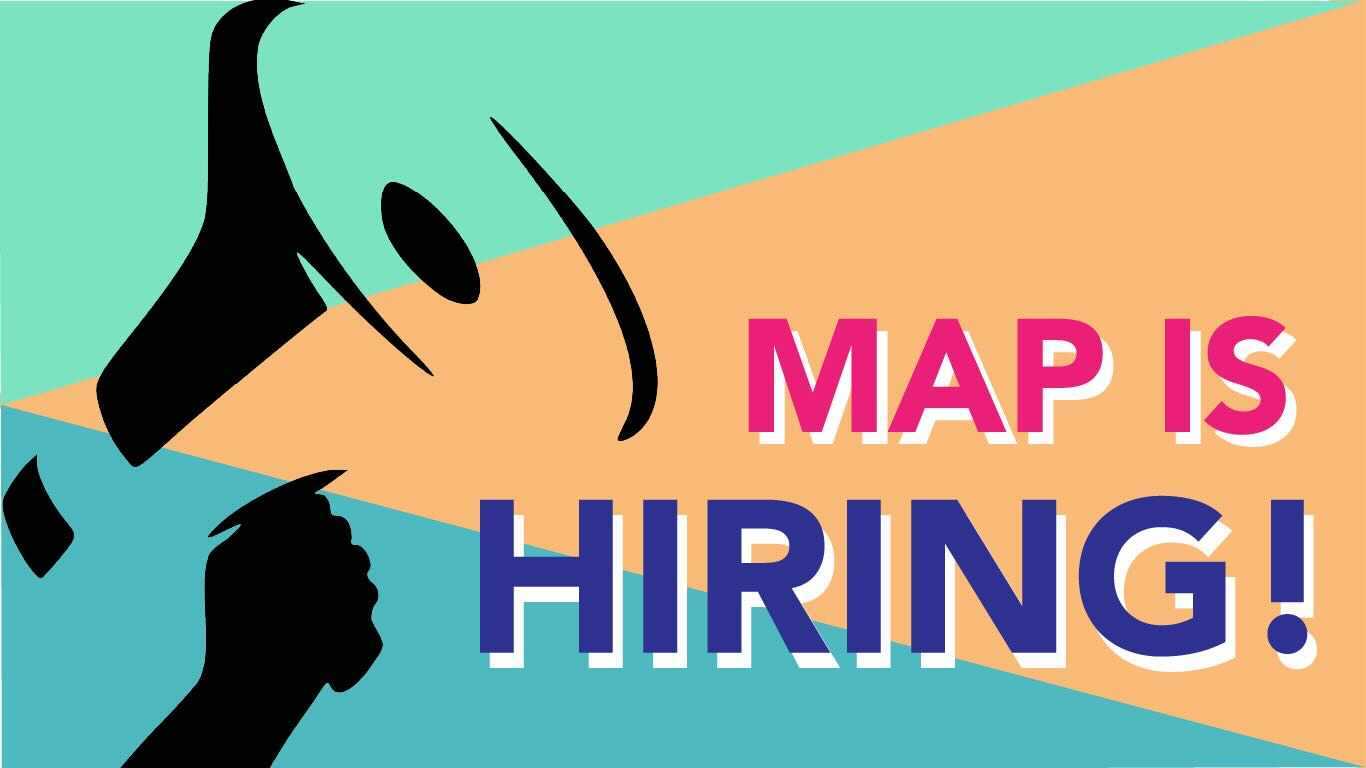

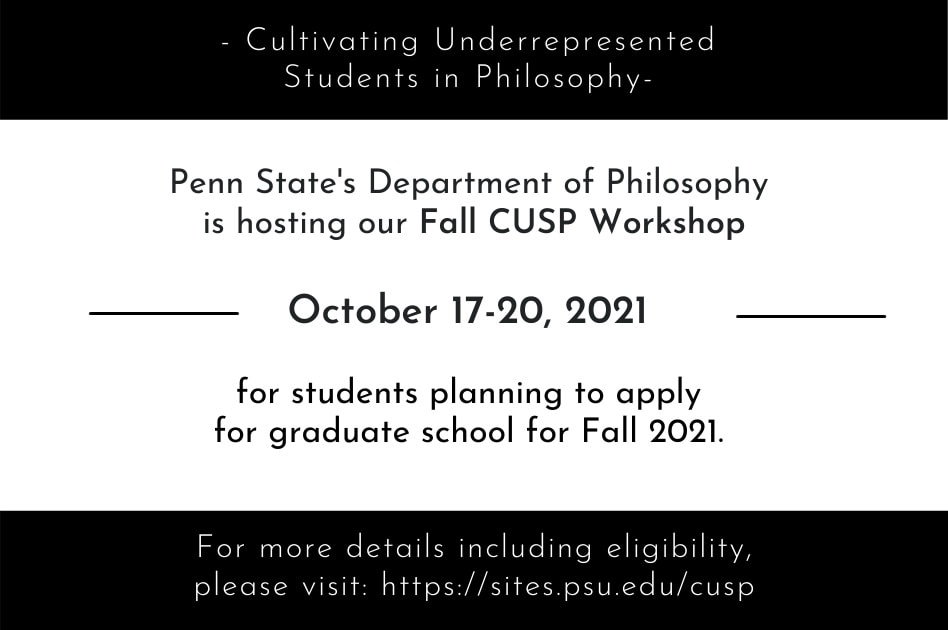
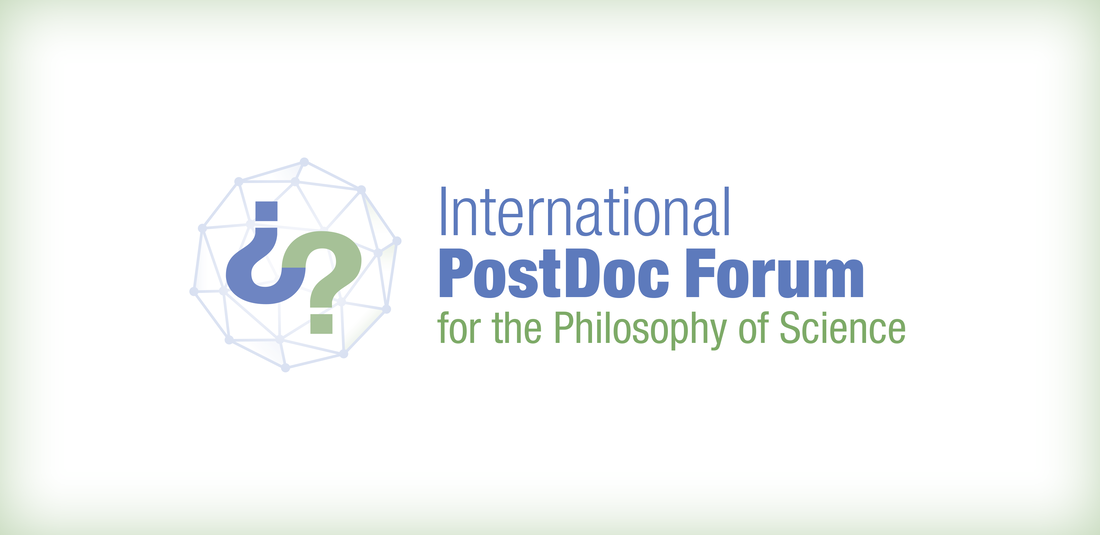
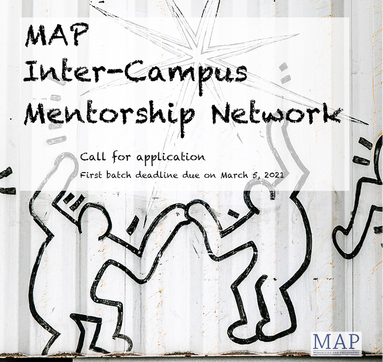
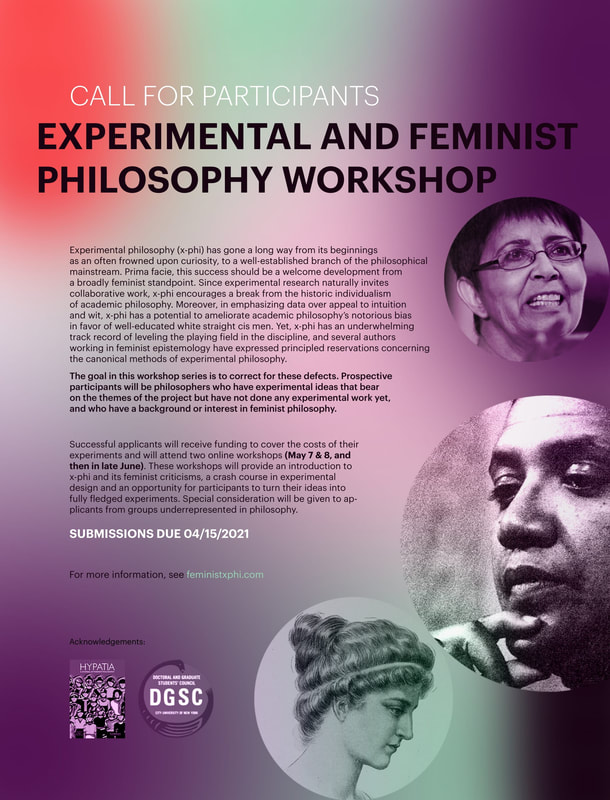
 RSS Feed
RSS Feed